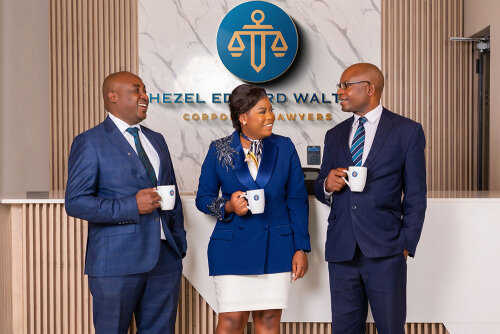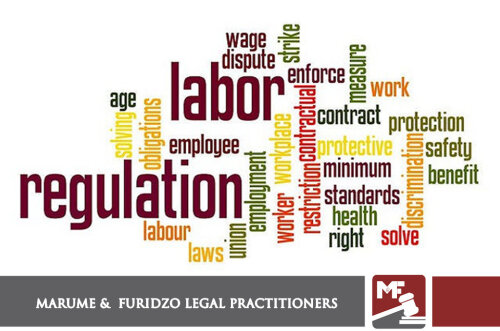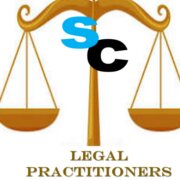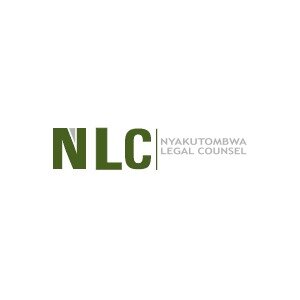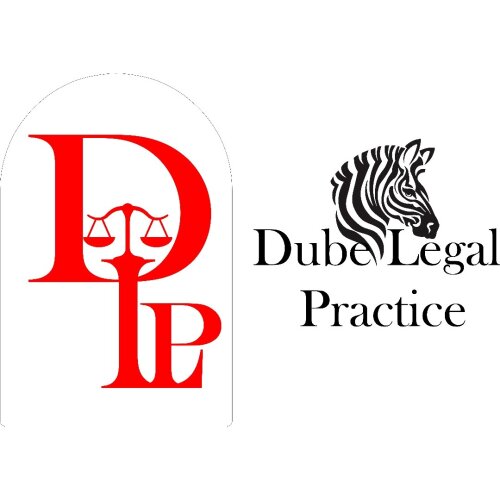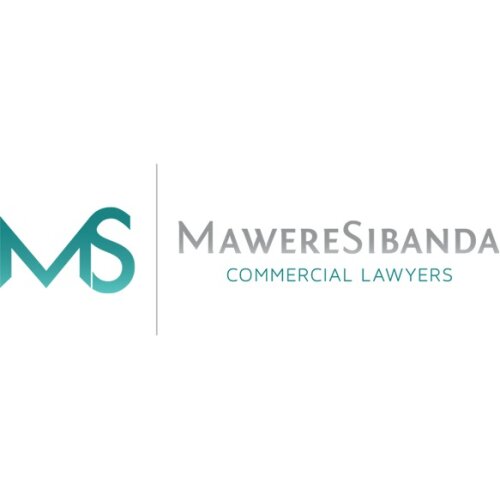Best Conveyancing Lawyers in Zimbabwe
Share your needs with us, get contacted by law firms.
Free. Takes 2 min.
Free Guide to Hiring a Real Estate Lawyer
Or refine your search by selecting a city:
List of the best lawyers in Zimbabwe
About Conveyancing Law in Zimbabwe
Conveyancing is the legal process of transferring ownership of immovable property, such as land or a house, from one person or entity to another. In Zimbabwe, conveyancing is governed by a combination of statutes and legal practices that ensure property transactions are conducted legally and transparently. This process involves the preparation, execution, verification, and lodgement of legal documents to effect the change of ownership registered at the Deeds Registry. Conveyancing protects the buyer and the seller by making sure the transaction is properly recorded and that both parties’ rights are upheld.
Why You May Need a Lawyer
Engaging a lawyer for conveyancing matters in Zimbabwe is highly recommended due to the complexity of property law and the risks involved in property transactions. Common situations where legal help is required include:
- Buying or selling property and needing to ensure the transaction complies with Zimbabwean law.
- Transferring property due to inheritance after the death of an owner.
- Resolving disputes over property boundaries, titles, or ownership rights.
- Securing a mortgage or other financial interest in a property.
- Dealing with leasehold conversions or subdivision of land.
- Correcting errors or irregularities in title deeds.
- Processing donation of property between family members.
A lawyer specializing in conveyancing can handle negotiations, prepare all the required documents, conduct due diligence to identify issues affecting the property, and represent you throughout the process to avoid costly mistakes and potential legal disputes.
Local Laws Overview
Several key laws and regulations govern conveyancing in Zimbabwe:
- Deeds Registries Act [Chapter 20:05]: Establishes requirements for registration of transfers, mortgages, and other property rights at the Deeds Registry.
- Land Survey Act [Chapter 20:12]: Provides for the surveying and subdivision of land, which can impact conveyancing transactions.
- Transfer Duty Act [Chapter 23:02]: Imposes a government tax, known as transfer duty, payable when property changes hands.
- Urban Councils Act [Chapter 29:15] and Rural District Councils Act [Chapter 29:13]: Affect land-use rights, municipal approvals, and conditions regarding property within local authority areas.
- Estate Duty Act: Relevant when transferring property from the estate of a deceased person.
In Zimbabwe, only registered conveyancers or legal practitioners are allowed to prepare and lodge transfer and mortgage documents at the Deeds Registry. All transactions must be recorded to be valid in law, and failure to do so can result in loss of rights or disputes.
Frequently Asked Questions
What is the role of a conveyancer in Zimbabwe?
A conveyancer is a registered legal practitioner qualified to handle property transfers. They prepare all necessary documents, conduct due diligence, calculate and collect government duties, and ensure the property is legally transferred and registered.
How long does the conveyancing process usually take?
On average, the process can take between four to twelve weeks, depending on factors such as the complexity of the transaction, delays in obtaining required documents, and the efficiency of the Deeds Registry.
What are the main costs involved in conveyancing?
Typical costs include conveyancer’s fees, transfer duty, Deeds Registry and municipal charges, stamp duty, and costs for obtaining certificates or documents required for registration.
Is it necessary to use a lawyer or registered conveyancer?
Yes, only qualified lawyers or registered conveyancers are permitted by law to prepare, sign, and lodge transfer documents for immovable property transactions in Zimbabwe.
Can foreigners buy property in Zimbabwe?
Foreign nationals can own property in Zimbabwe, subject to certain restrictions and requirements. They must comply with all local registration and tax regulations. In some cases, non-residents may be limited in acquiring agricultural land.
What documents are needed for property transfer?
Typical documents include the Title Deed, agreement of sale, proof of payment of rates, tax clearance certificate, identity documents, and, if applicable, company or trust registration documents.
What is transfer duty and who pays it?
Transfer duty is a government tax on the transfer of property, calculated as a percentage of the purchase price or property value. Usually, it is paid by the buyer before transfer can be registered.
How can I verify if the property title is valid?
A lawyer or conveyancer will conduct a deeds office search to confirm the property’s registration status, ensure there are no encumbrances such as mortgages or caveats, and check that the seller is the legal owner.
What happens if there is a dispute over property boundaries?
Your conveyancer will help you access surveyor’s records and, if necessary, work with a government land surveyor to resolve boundary disputes before completing the transfer.
Is it possible to reverse a property transfer?
Reversing a registered property transfer is difficult and can only be achieved through a new transfer process or a court order, often in cases of fraud, error, or mutual agreement between the parties.
Additional Resources
For people seeking more information or assistance, consider these helpful resources:
- Deeds Registry Office in Harare and Bulawayo - handles all property registration in Zimbabwe.
- Law Society of Zimbabwe - maintains a list of practicing lawyers and registered conveyancers.
- Ministry of Justice, Legal and Parliamentary Affairs - oversees legal practice and property-related laws.
- Surveyor General’s Office - provides services for land surveys and boundary clarifications.
- Local municipal and rural district council offices - provide rates clearances and land-use information.
Next Steps
If you need legal assistance with conveyancing in Zimbabwe, consider the following steps:
- Gather all available documentation related to your property or planned transaction, such as agreements of sale, old title deeds, identity documents, and any correspondence with buyers or sellers.
- Contact a registered conveyancer or a lawyer with experience in property matters. You can find a qualified attorney through the Law Society of Zimbabwe or personal recommendations.
- Schedule a consultation to discuss your case, ask about the expected costs and timelines, and clarify any questions before proceeding.
- Ensure you understand all your obligations, including payment of relevant taxes and obtaining municipal clearances, to avoid delays or penalties.
- Stay actively involved by reviewing documents prepared on your behalf and remaining informed throughout the process until completion of the transfer.
Seeking professional legal advice early in the process helps protect your rights and investments, ensures compliance with Zimbabwean law, and provides peace of mind for a successful property transaction.
Lawzana helps you find the best lawyers and law firms in Zimbabwe through a curated and pre-screened list of qualified legal professionals. Our platform offers rankings and detailed profiles of attorneys and law firms, allowing you to compare based on practice areas, including Conveyancing, experience, and client feedback.
Each profile includes a description of the firm's areas of practice, client reviews, team members and partners, year of establishment, spoken languages, office locations, contact information, social media presence, and any published articles or resources. Most firms on our platform speak English and are experienced in both local and international legal matters.
Get a quote from top-rated law firms in Zimbabwe — quickly, securely, and without unnecessary hassle.
Disclaimer:
The information provided on this page is for general informational purposes only and does not constitute legal advice. While we strive to ensure the accuracy and relevance of the content, legal information may change over time, and interpretations of the law can vary. You should always consult with a qualified legal professional for advice specific to your situation.
We disclaim all liability for actions taken or not taken based on the content of this page. If you believe any information is incorrect or outdated, please contact us, and we will review and update it where appropriate.
Browse conveyancing law firms by city in Zimbabwe
Refine your search by selecting a city.




